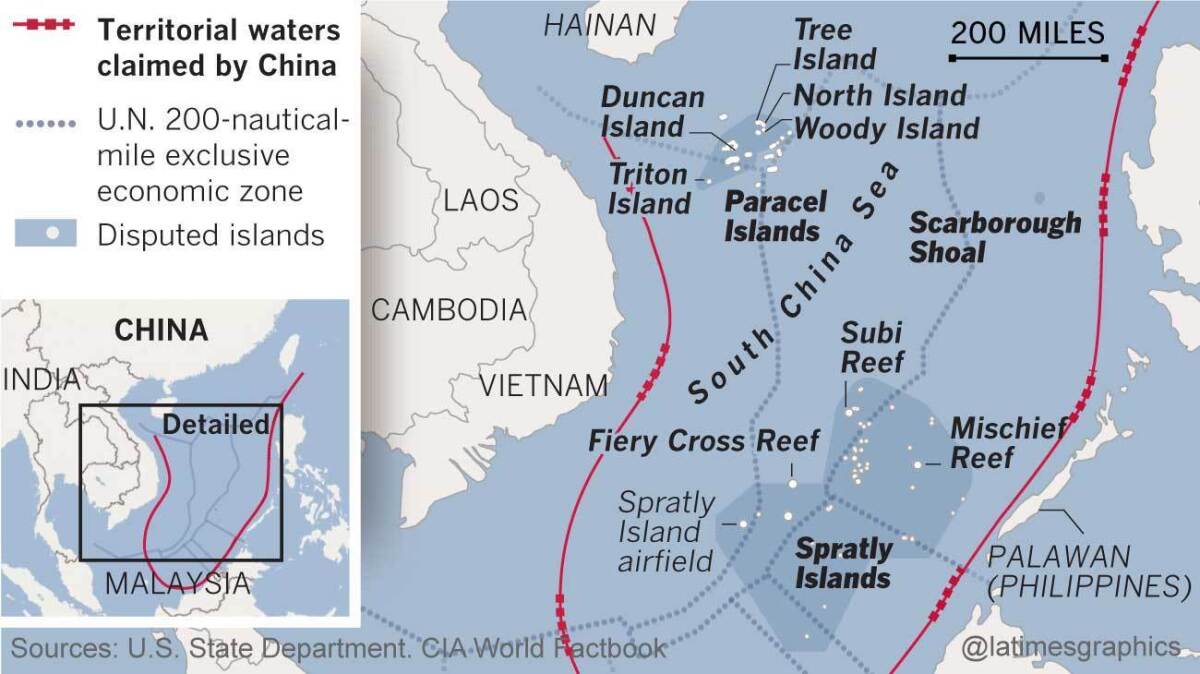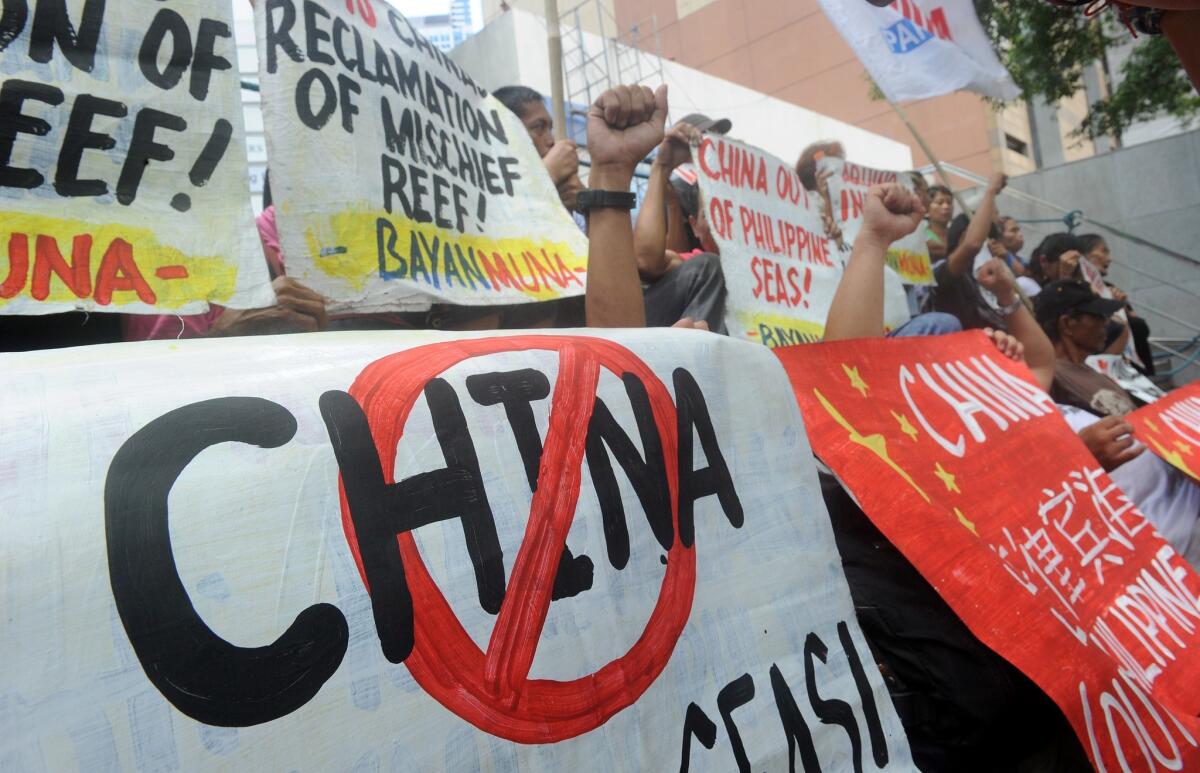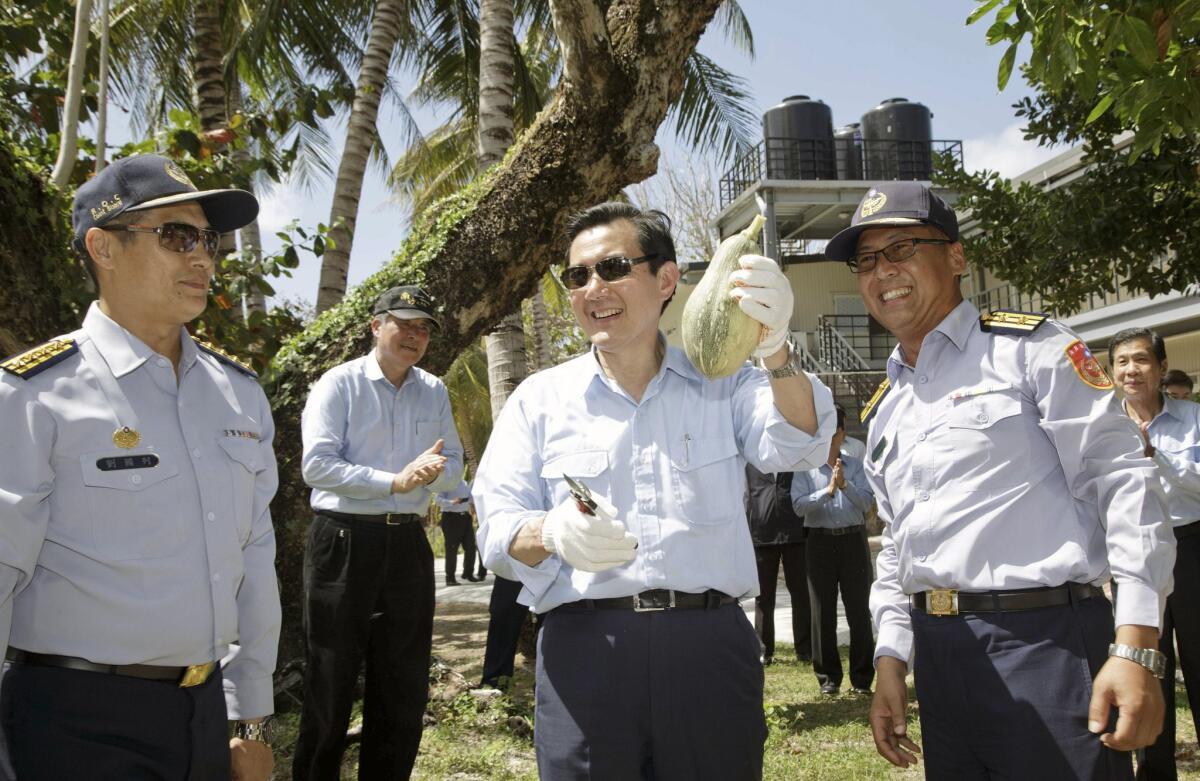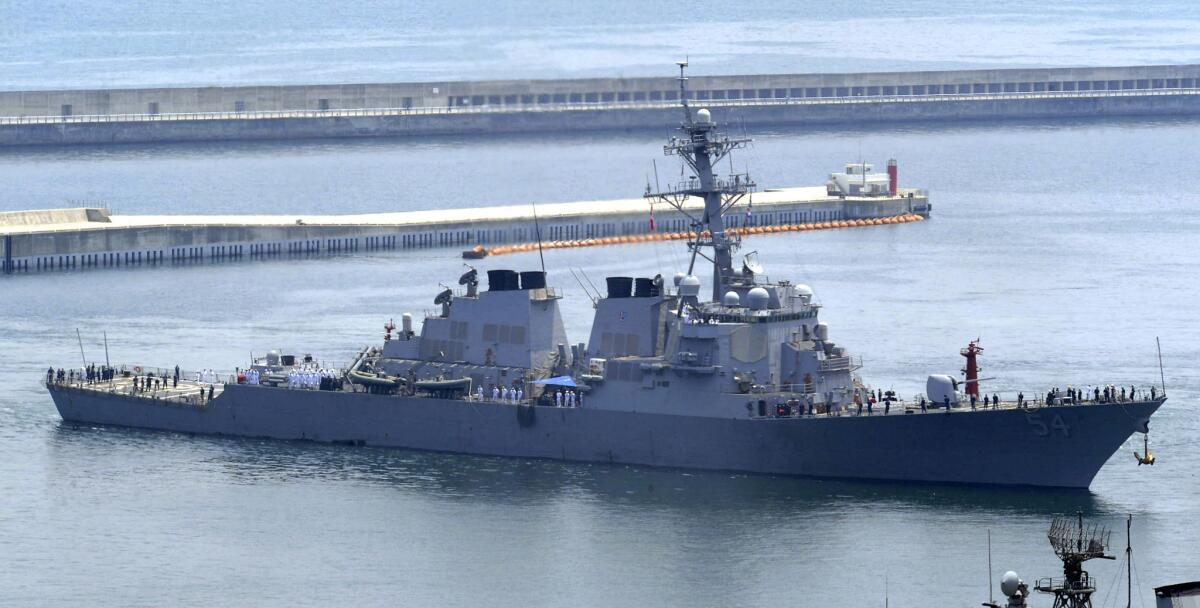Timeline: South China Sea: A look into the rising tensions

A Chinese navy dispatcher demanded eight times Wednesday that a U.S. Air Force P8-A Poseidon surveillance aircraft leave the area as it flew over Fiery Cross Reef, where China has conducted extensive reclamation work on what it claims as sovere
A rundown of some of the notable events leading up to Wednesday's news that China had put anti-aircraft missiles on Woody Island in the South China Sea:
January 2015
China begins construction on airstrip at Fiery Cross Reef after land reclamation efforts in 2014. The airstrip will have an estimated final length of 1.93 miles, long enough to allow any Chinese military aircraft to land, according to the Asia Maritime Transparency Initiative at the Center for Strategic and International Studies.

May 20, 2015
A U.S. P8-A surveillance plane carrying a CNN crew flies over disputed territories in the South China Sea. The mission aimed to monitor China’s island-building processes in the Spratly Islands, including Mischief and Fiery Cross reefs. According to CNN, the flight triggered eight warnings from the Chinese Navy, which demanded the U.S. plane to “go away quickly.” The plane crew told CNN that they “see this every day,” indicating that the U.S. had been conducting regular missions in the area for some time. The P8-A Poseidon is America's most advanced surveillance and submarine-hunting aircraft.
May 29, 2015
In a speech in Singapore, U.S. Defense Secretary Ashton Carter calls for an “immediate and lasting halt” to China’s land reclamation projects. He says that China has reclaimed 2,000 acres, more than all other claimants combined. Hua Chunying, a spokeswoman for China’s Foreign Ministry, responded the next day that the U.S. has “ignored history, laws, and facts.”
June 16, 2015
Chinese Foreign Ministry spokesman Lu Kang announces that “as planned, the land reclamation project of China’s construction on some stationed islands and reefs of the Nansha [Spratly] Islands will be completed in the upcoming days.” He notes that after land reclamation is complete, China would continue to construct facilities on the islands and reefs.
Sept. 2, 2015
In a sign of the expanding reach of China’s navy, five Chinese ships are found to be sailing in international waters in the Bering Sea off Alaska. The apparent first for China's military came as President Obama was visiting the state. "We respect the freedom of all nations to operate military vessels in international waters in accordance with international law," Pentagon spokesman Captain Jeff Davis says.
September 2015
China completes a 1.93-mile runway on Fiery Cross Reef.
Oct. 27, 2015
The U.S.’s guided-missile destroyer Lassen sails within 12 nautical miles of Subi Reef, held by China but also claimed by Taiwan, the Philippines and Vietnam. U.S. Defense Secretary Ashton Carter, testifying later before a Senate panel, says: "We will fly, sail and operate wherever international law permits and whenever our operational needs require."
Chinese officials express strong opposition, with China’s ambassador to the U.S. saying such operations are “a very serious provocation.” Chinese military spokesman Col. Yang Yujun offers similarly stern words about what he called "an abuse of freedom of navigation." Subi Reef is one of seven reefs in the Spratly Islands on which China has constructed artificial islands.
Oct. 29, 2015
In a legal setback for Beijing, an arbitration court in The Hague says that it has jurisdiction to hear territorial claims the Philippines has filed against China over disputed areas in the South China Sea. China rejects the court's authority in the case and is boycotting the proceedings.
Nov. 5, 2015
U.S. Secretary of Defense Ashton Carter visits the aircraft carrier Theodore Roosevelt in the South China Sea with Malaysian Defense Minister Hishammuddin Hussein. "Being here ... is a symbol and signifies the stabilizing presence that the United States has had in this part of the world for decades," Carter tells reporters. "If it's being noted today in a special way, it's because of the tension in this part of the world, mostly arising from disputes over land features in the South China Sea, and most of the
Nov. 8, 2015
Two U.S. B-52 bombers take off from Guam and fly around the Spratly Islands near Chinese-built artificial islands. According to U.S. Army Maj. Dave Eastburn, a spokesman for the U.S. Pacific Command, Chinese air-traffic controllers on the ground reached out to one of the U.S. aircrafts by radio and warned it had “violated the security of my reef.” Eastburn says the aircraft was more than 12 nautical miles away from the Spratlys at the time of the radio call. Pentagon press secretary Peter Cook says “the aircraft continued that mission unabated. Nothing changed.”

Filipino protesters display placards during a rally outside China’s consular office in Manila on April 17 against the country’s claim to islands and reefs in the South China Sea.
Nov. 24-29, 2015
The Hague tribunal hears oral arguments in the Philippine case against China.
Dec. 10, 2015
Two U.S. B-52 bombers get within 12 nautical miles of China’s man-made islands in the South China Sea. Bill Urban, the Defense Department spokesman, says the planes mistakenly entered disputed territory on a routine training missions. He adds that the mission, unlike the operation of the Lassen in October, was not a “freedom of navigation operation.” The Chinese Defense Ministry accuses U.S. of “flexing muscles” and calls the incident a “serious military provocation.”
Jan. 2, 2016
China says it has conducted a civilian test flight to Fiery Cross Reef. Vietnam says it has lodged an official protest with the Chinese Embassy in Hanoi over the action.
Jan. 6, 2016
China says it has conducted a second test flights to Fiery Cross Reef. Two civilian aircrafts were flown from the southern island of Hainan to Fiery Cross Reef. The planes returned to Hainan later that day.
Jan. 11, 2016
Chinese media report that China has finished construction on a second 10,000-ton China Coast Guard cutter destined for patrols in the South China Sea": the CCG 3901, dubbed the “monster” by the media due to its large size for a coast guard vessel. According to a report in the Diplomat, the vessel could have a displacement of 12,000 to 15,000 metric tons once all systems are installed -- bigger than U.S. Navy’s Ticonderoga-class guided missile cruiser by about 50%, and bigger than an Arleigh-Burke-class guided missile destroyer (e.g., the Lassen), which displaces around 9,700 tons. Chinese state media say the CCG 3901 is equipped with 76mm rapid fire guns, two secondary guns and two antiaircraft guns. It also has a helicopter platform and hangar in the stern large enough to accommodate larger rotary-wing aircraft.

In this photo released by the Taiwan Presidential Office, Taiwan President Ma Ying-jeou displays a locally grown fruit during his visit to Taiping Island on Thursday.
Jan. 28, 2016
Wading into choppy political waters, Taiwan’s outgoing President Ma Ying-jeou pays a visit to a disputed Taiwan-controlled islet in the South China Sea. Ma calls for peace among claimants of the disputed territories.

The U.S. destroyer Curtis Wilbur is shown in 2010.
Jan. 30, 2016
The guided-missile destroyer Curtis Wilbur sails within 12 nautical miles of Triton Island, claimed by China and two other states in the South China Sea, in what the U.S. says is an effort to counter attempts to limit freedom of navigation. Pentagon spokesman Capt. Jeff Davis says "no claimants were notified prior to the transit, which is consistent with our normal process and international law." China strongly condemns the move, and China's defense ministry says the U.S. action was "intentionally provocative" and "irresponsible and extremely dangerous."
Feb. 13, 2016
New satellite images show what appear to be construction of Chinese helicopter landing sites at Duncan Island in the Paracel chain. According to a report in the Diplomat, these could be used to support to support anti-submarine warfare helicopters such as the ASW Z-18F. The images also show dredging and port work at Tree Island and North Island in the Paracel chain.
Feb. 17, 2016
Taiwan says China has deployed antiaircraft missiles on Woody Island.
Special correspondent Chuan Xu and Nicole Liu in the Times’ Beijing bureau contributed to this report.
Follow @JulieMakLAT for news from China
Sign up for Essential California
The most important California stories and recommendations in your inbox every morning.
You may occasionally receive promotional content from the Los Angeles Times.








